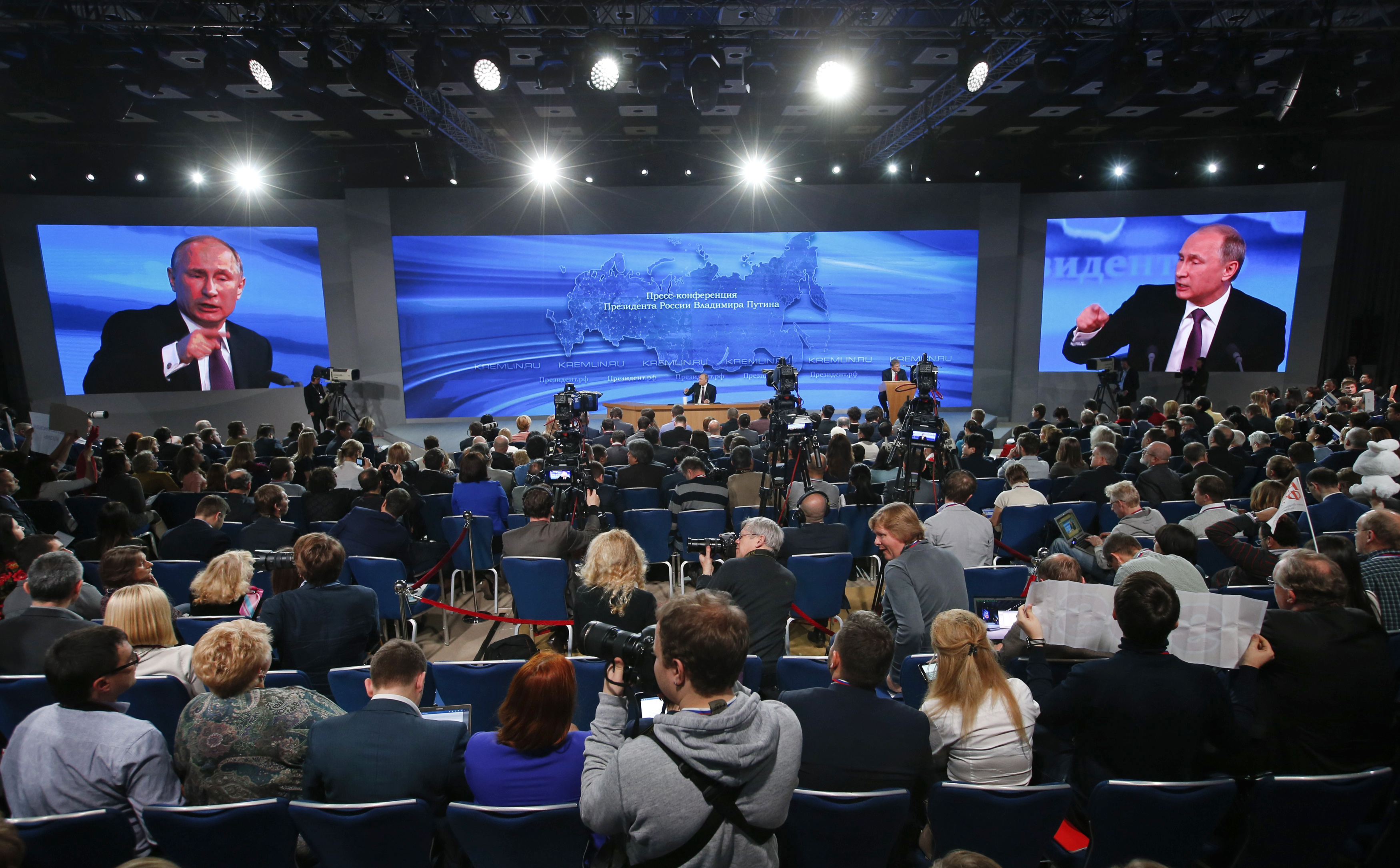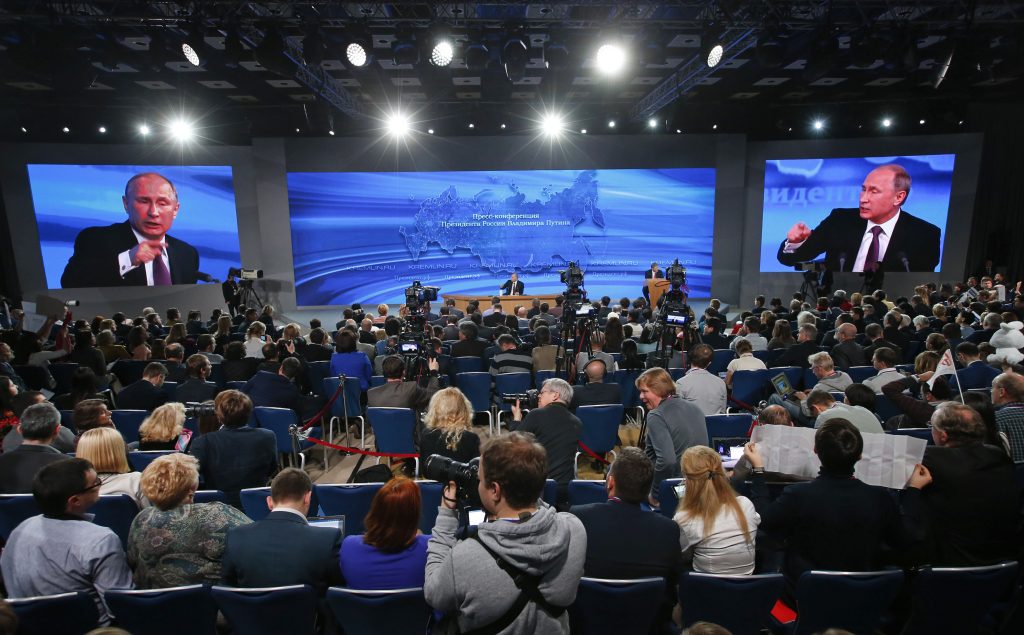
Pascual: As Russia Faces Economic Downturn, West Should Probe Kremlin on Chances of a Merkel-Brokered Deal
In his annual press conference this week, Russian President Vladimir Putin offered no clear suggestion for how he proposes to dig Russia out of its deepening economic hole. And he signaled no new direction in government’s sponsorship of the separatist war in southeastern Ukraine. On both crises, his performance left all his options open.
Putin held to his most recent rhetorical status quo on Ukraine. He averred that he finds in Ukrainian President Poroshenko a man with whom peace could be made, leaving himself room to negotiate for a deal in which he might hope to achieve at least a minimum of his immediate goals—to retain an effective veto on Ukraine’s integration with Europe and its institutions, beginning with the European Union.
“Putin’s remarks Thursday show some flexibility on Ukraine,” Atlantic Council analyst John Herbst noted by e-mail. “That means—as we saw in his summertime efforts to avoid sanctions—that he is giving himself leeway to move in another direction. But it does not mean he will do so.”
On the economy, Putin’s bland assertion that the government and central bank are taking “appropriate measures” leaves him free to choose between eventual market reforms or state controls to attempt a recovery.
“Russia is in a very tight financial bind,” noted Herbst, the director of the Council’s Eurasia Center. “To defend the ruble either it must use its still-bountiful reserve funds, or it must raise interest rates, a bad step for an economy in recession.”
The opacity of Putin’s decision-making means nothing is sure, but his economic predicament may offer the West a new chance at trying to find a deal with him on Ukraine, according to Carlos Pascual, the former US special envoy for international energy affairs. (Pascual and Herbst both are former ambassadors to Ukraine, and Pascual now serves on the Atlantic Council’s board of directors.)
“This is precisely the moment to resolve the Russia-Ukraine crisis and rescue both nations from economic chaos,” Pascual wrote in a commentary yesterday for CNBC that he co-authored with Columbia University energy scholar Jason Bordoff.
“But Ukraine and Russia need help to forge a pact on stability,” Pascual and Bordoff wrote. “Left to their own instincts, Russia and Ukraine will each come to the negotiating table with demands that will cause the other to walk away.” As a result, the key mediator is German Chancellor Angela Merkel. She “is unique in her relationships of trust and influence with Presidents Putin and Poroshenko. For Russians and Ukrainians, Merkel is the key to Europe. The EU and the United States need to coordinate with her team, but she must lead this process.”
James Rupert is an editor at the Atlantic Council.
Image: Russian President Vladimir Putin faces an auditorium of journalists at his annual news conference in Moscow, December 18. While analysts have said he may soon reshuffle some top posts in his government over the collapse in the value of the ruble, Putin voice general approval of his cabinet and central bank. (Reuters/ Maxim Zmeyev)
